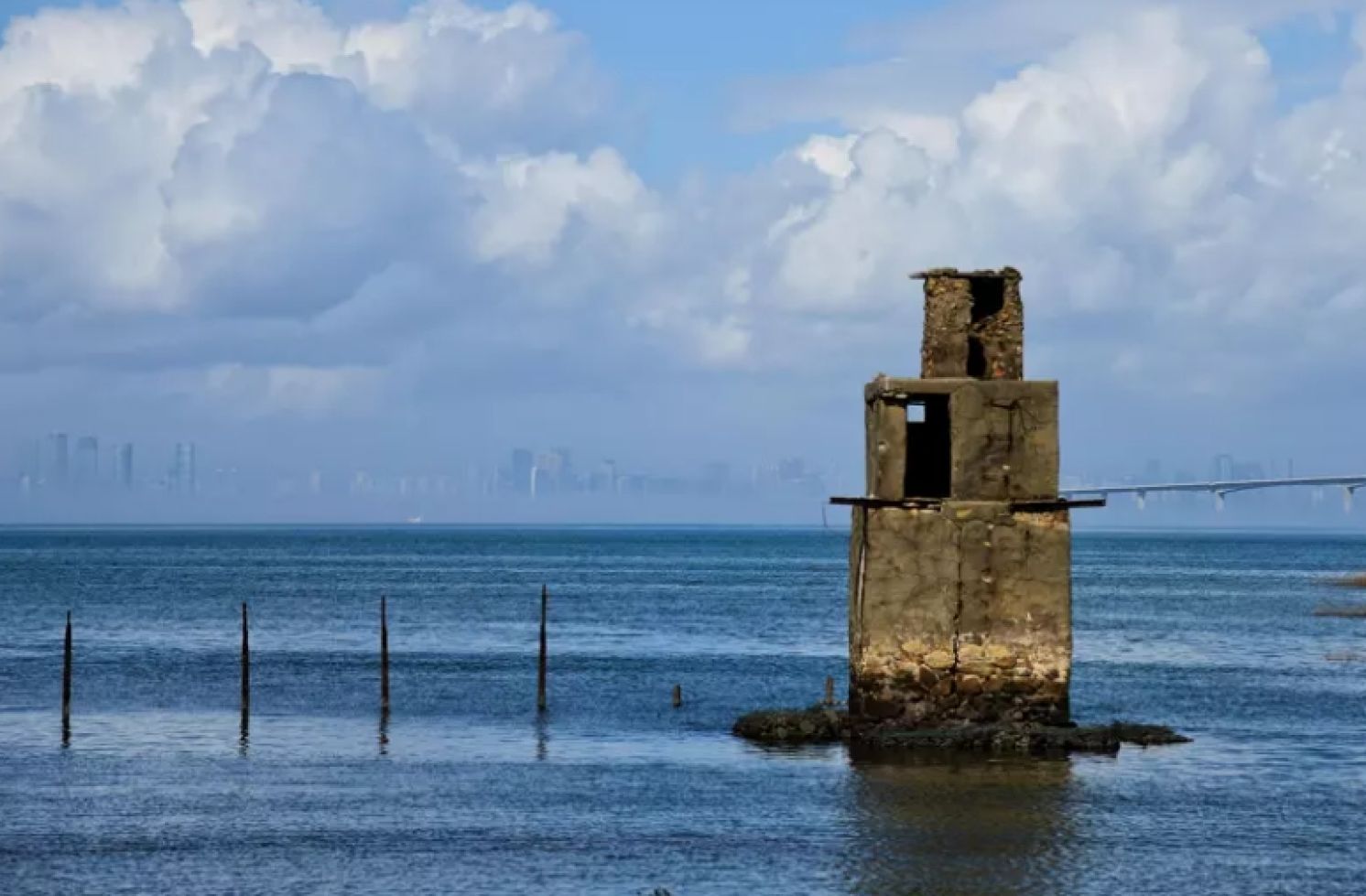
Kinmen Incident May Lead to Taiwan's Ceding Territory and Paying Indemnities
United Daily News, February 25, 2024
On February 14, a mainland Chinese nameless, unregistered, and uncertified fishing boat capsized during pursuit by Taiwan Coast Guard ships for trespass off the coast of Kinmen resulting in the deaths of two Chinese fishermen. It was not a serious fishing incident at first, but 10 days later, due to the mishandling of the Democratic Progressive Party (DPP) administration, the incident has become a cross-strait dispute attracting the attention of the world. In a worst-case scenario, Taiwan could end up “ceding territories and paying indemnities” like the late Qing Dynasty.
DPP Sent Officials to Negotiate with Non-Official Chinese Representatives, But Matter Remains Unsettled
From the very beginning of the incident, Taiwan’s Coast Guard and the Mainland Affairs Council (MAC) have failed to explain the incident truthfully and completely. They revealed facts bit by bit only when under external pressure, giving the Taiwan Affairs Office (TAO) of mainland China’s State Council the excuse to accuse the Taiwan authorities of “violent law enforcement” and intentionally hiding the truth, thus placing Taiwan in a disadvantageous position in later negotiations.
After the incident, mainland China announced that family members of the fishermen would be accompanied by the Quanzhou Red Cross personnel to go to Kinmen to get the fishermen back and handle the aftermath. The leader of the mainland Chinese delegation is Li Zhaohui, deputy director of the Quanzhou Taiwan Affairs Office, yet he is also a senior advisor to the Quanzhou Red Cross. Quanzhou is a prefecture-level city, making Li a deputy-division-head-level official.
To handle the incident, mainland China is represented by the Quanzhou Red Cross, supervised by the Taiwan Affairs Office. It is paradoxical that while emphasizing equity and dignity in dealing with the mainland, the DPP did not appoint equivalent Kinmen Red Cross personnel but senior officials such as Director-General Chou Ming-huei of the Department of Legal Affairs, MAC; Deputy Director-General Hsu Ching-chi of the Coast Guard Administration, Ocean Affairs Council; and Deputy Director-General Chiang Lin of the National Immigration Agency, Ministry of the Interior.
The reason the DPP has decided to have government officials engage with “nonofficial” personnel when sending high-level officials to negotiate with their mainland Chinese counterparts is probably to show that cross-strait negotiation is part of the central government’s jurisdiction that no local governments or private citizens can handle such affairs. It could also be a way to demonstrate Taiwan’s seriousness. If the central government is willing to step up and settle the matter to the satisfaction of both sides, the public opinion of Taiwan could care less about the equity of the cross-strait negotiation. However, it turns out not to be the case.
Single Maritime Law Enforcement Dispute: Taiwan Could End Up Ceding Territory and Paying Indemnities
Before this fatal fishing incident, in protest of mainland China’s unilateral modification of the M503 flight path, the DPP administration abruptly suspended all tourist groups to the mainland starting from June 1. Ordinary citizens in Taiwan won’t feel a thing no matter how the M503 flight path is modified; however, the decision to suspend group tours to the mainland has caused chaos in Taiwan. The tourism industry and affected citizens have voiced their disapproval and criticized the DPP’s national security team for being unable to solve problems but creating new ones.
After the incident, the TAO first announced that there were no such things as prohibited or restricted waters between Kinmen and Xiamen. Then the Fujian provincial Coast Guard announced that they would patrol these waters regularly. The very next day many Chinese coast guard ships showed up and even conducted an on-board inspection on one of Kinmen’s tourist boats. These actions are meant to demonstrate Beijing’s dominance and initiative in dealing with Taiwan.
The terms of settlement proposed by the TAO: to make public the truth about the incident, to severely punish those responsible, to formally apologize to the families of the victims, and to meet their legitimate demands.
The progress made by the DPP administration: The tacit agreement on “prohibited or restricted waters” will disappear similar to the medium line of the Taiwan Strait, Taiwan will offer solatium to each family of the victims at NT$7.5 million (about US$237,300).
Before the inauguration of President-elect William Lai in May, the DPP’s mishandling of a small maritime law-enforcement dispute could end up with Taiwan ceding territories (prohibited or restricted waters), paying indemnities, and offering apologies. It would be a defeat both in name and substance. It makes people question the DPP’s ability to protect Taiwan’s sovereignty, security, and interests if the cross-strait tension continues to rise and a more serious confrontation arises in the future.